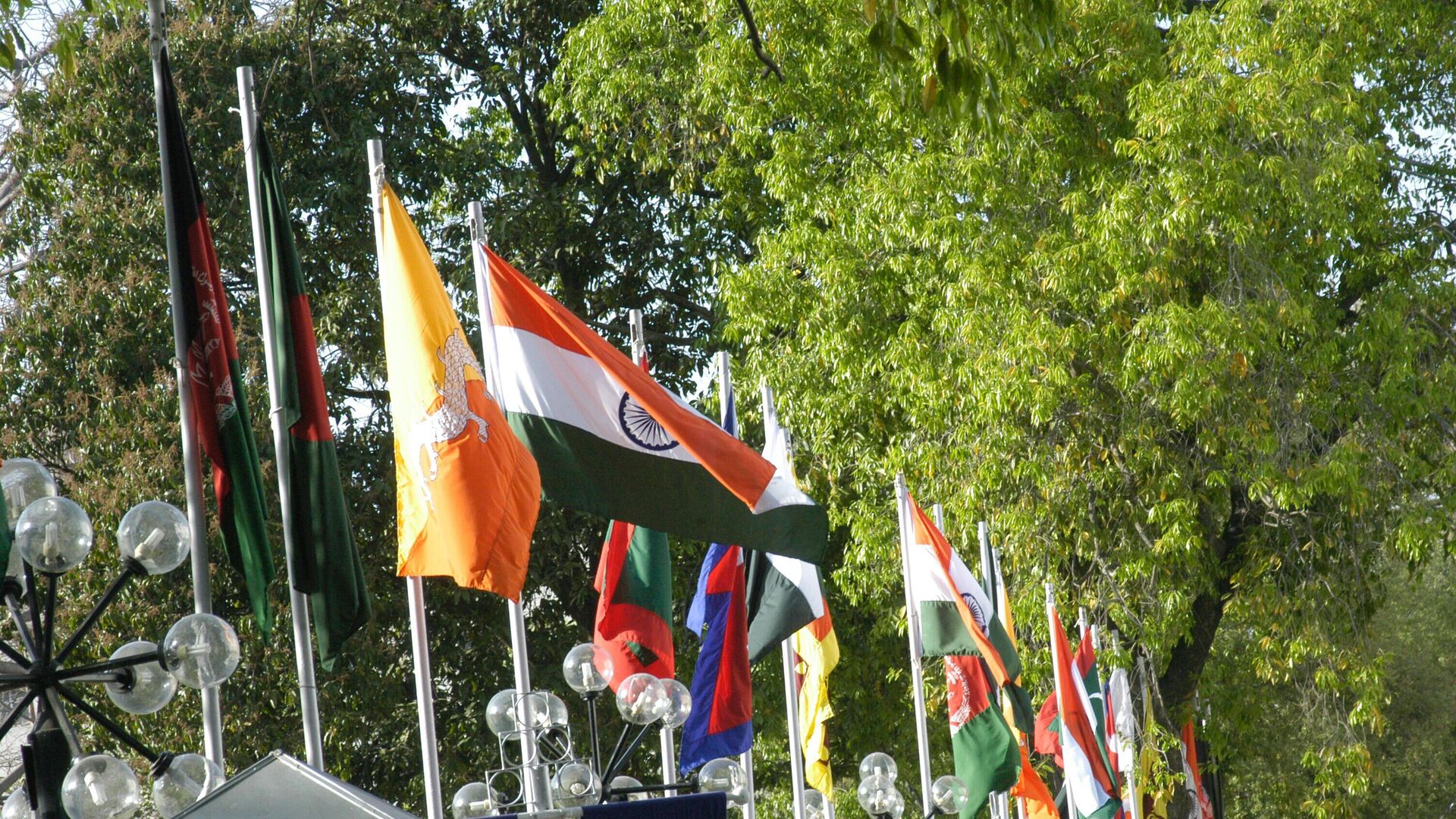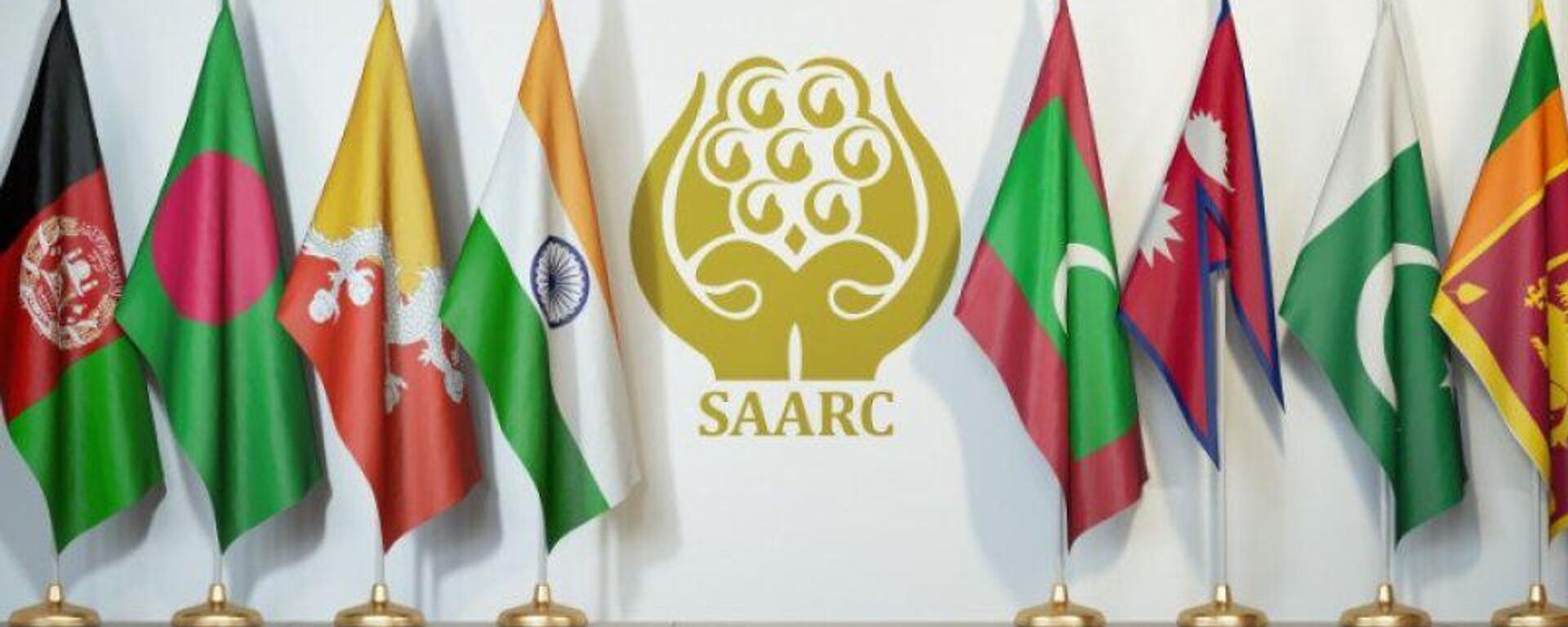https://sputniknews.in/20250218/bangladesh-seeks-to-resurrect-saarc-but-is-india-on-board-8787245.html
Bangladesh Seeks to Resurrect SAARC, But Is India On Board?
Bangladesh Seeks to Resurrect SAARC, But Is India On Board?
Sputnik India
Foreign Affairs Advisor of the interim government of Bangladesh, Touhid Hossain, has urged India to support Dhaka's plans to revive the now-defunct South Asian... 18.02.2025, Sputnik India
2025-02-18T21:34+0530
2025-02-18T21:34+0530
2025-02-18T21:37+0530
india
pakistan
bangladesh
south asian association for regional cooperation (saarc)
bimstec
https://cdn1.img.sputniknews.in/img/07e9/02/12/8788104_0:82:3009:1774_1920x0_80_0_0_486b3d0a859e99912f3271348cc5ae18.jpg
India is unlikely to back Bangladesh's calls to revive the South Asian Association for Regional Cooperation (SAARC) as the regional grouping is often shrouded with security issues between arch-rivals India and Pakistan, experts have said.Interestingly, Bangladesh's proposal to revive SAARC and its call for India's backing comes at a time when deep-seated tensions with Pakistan continue to cast a long shadow over the organisation.Ties between India and Pakistan have remained in a deep freeze since 2019, after both countries reduced diplomatic relations, recalling their ambassadors, following India's move to revoke the semi-autonomous status of Jammu and Kashmir.Subsequently, the northern hill state was divided into two Union Territories – Jammu and Kashmir, and Ladakh.In practical terms, India is looking for mechanisms that can drive real results—whether that means enhanced economic cooperation or improved regional security—without being dragged down by past conflicts, he added.For India, any regional forum should ideally help bypass the longstanding deadlock with Pakistan, something SAARC has struggled to achieve, the expert said. Until there's a "significant change in Pakistan's stance, it's unlikely that India would want to risk its strategic interests by reviving a platform that has a history of delivering more talk than action," the think tanker underlined.India's focus is on fostering a stable, productive regional environment, looking beyond the limitations of SAARC, Prashant emphasised.Touhid Hossain represents a regime that has not been democratically elected and has shown alignment with policies that often conflict with India's interests, Dhaka-based award-winning journalist Salah Uddin Shoaib Choudhury, the editor of the Blitz media outlet, told Sputnik India..Hossain's call for India's support in reviving SAARC may raise doubts, particularly given the current leadership's alignment with Pakistan and China, as well as its historical downplaying of Bangladesh's war of independence, he noted.On the other hand, the Bay of Bengal Initiative for Multi-Sectoral Technical and Economic Cooperation (BIMSTEC) has quickly become the cornerstone of India's regional strategy, especially as it offers a more pragmatic alternative to SAARC, Parashar pointed out.By design, BIMSTEC excludes Pakistan and instead brings together nations from South and Southeast Asia, which resonates well with India's broader "Act East" policy and its efforts to build strong ties across the Indo-Pacific, he elaborated. The grouping creates a space where India can engage on economic, cultural, and security issues without the constant distraction of entrenched conflicts, the strategic affairs commentator observed.BIMSTEC focuses on creating genuine connectivity and boosting economic collaboration. Projects designed to improve transport links and enhance trade go beyond infrastructure—they aim to build bridges between communities and ensure regional development is a collective goal, he noted.This approach enables India to foster focused and flexible cooperation, avoiding the cumbersome decision-making processes that have often bogged down SAARC, Parashar stated.Therefore, BIMSTEC stands out as a more appealing forum for collaboration—a space where India can help lead a concerted effort to enhance stability and prosperity across a rapidly evolving region, he asserted.While SAARC was originally intended to foster regional integration across South Asia, it has faced difficulties due to political disputes, including concerns over Pakistan's support for certain groups in the region, Choudhury said, echoing Parashar's comments on how volatile relations between the two neighbours have impacted SAARC's effectiveness.
https://sputniknews.in/20240923/bangladesh-favours-saarcs-revival-ex-foreign-secretary-8189108.html
india
pakistan
bangladesh
Sputnik India
feedback.hindi@sputniknews.com
+74956456601
MIA „Rossiya Segodnya“
2025
Pawan Atri
https://cdn1.img.sputniknews.in/img/07e6/0c/13/139630_147:0:831:684_100x100_80_0_0_8fa2b25903e7787fe6a2698552c167df.png
Pawan Atri
https://cdn1.img.sputniknews.in/img/07e6/0c/13/139630_147:0:831:684_100x100_80_0_0_8fa2b25903e7787fe6a2698552c167df.png
News
en_IN
Sputnik India
feedback.hindi@sputniknews.com
+74956456601
MIA „Rossiya Segodnya“
Sputnik India
feedback.hindi@sputniknews.com
+74956456601
MIA „Rossiya Segodnya“
Pawan Atri
https://cdn1.img.sputniknews.in/img/07e6/0c/13/139630_147:0:831:684_100x100_80_0_0_8fa2b25903e7787fe6a2698552c167df.png
india, pakistan, bangladesh, south asian association for regional cooperation (saarc), bimstec
india, pakistan, bangladesh, south asian association for regional cooperation (saarc), bimstec
Bangladesh Seeks to Resurrect SAARC, But Is India On Board?
21:34 18.02.2025 (Updated: 21:37 18.02.2025) Foreign Affairs Advisor of the interim government of Bangladesh, Touhid Hossain, has urged India to support Dhaka's plans to revive the now-defunct South Asian Association for Regional Cooperation (SAARC).
India is unlikely to back Bangladesh's calls to revive the South Asian Association for Regional Cooperation (SAARC) as the regional grouping is often shrouded with security issues between arch-rivals India and Pakistan, experts have said.
Interestingly, Bangladesh's proposal to revive SAARC and its call for India's backing comes at a time when deep-seated tensions with Pakistan continue to cast a long shadow over the organisation.
Ties between India and Pakistan have remained in a deep freeze since 2019, after both countries reduced diplomatic relations,
recalling their ambassadors, following India's move to revoke the semi-autonomous status of Jammu and Kashmir.
Subsequently, the northern hill state was divided into two Union Territories – Jammu and Kashmir, and Ladakh.
"While the idea of reactivating SAARC might seem appealing from a regional cooperation standpoint, India remains wary of engaging in a forum where Pakistan's disruptive policies have often stalled progress. The ongoing security and political issues make it hard for India to fully commit to a platform that might resurrect old disputes without offering new solutions," Dr Shushant VC Parashar, a Research Fellow at the New Delhi-based think tank Centre for Land Warfare Studies (CLAWS) told Sputnik India.
In practical terms, India is looking for mechanisms that can drive real results—whether that means enhanced economic cooperation or improved regional security—without being dragged down by past conflicts, he added.
For India, any regional forum should ideally help bypass the longstanding deadlock with Pakistan, something SAARC has struggled to achieve, the expert said. Until there's a "significant change in Pakistan's stance, it's unlikely that India would want to
risk its strategic interests by reviving a platform that has a history of delivering more talk than action," the think tanker underlined.
India's focus is on fostering a stable, productive regional environment, looking beyond the limitations of SAARC, Prashant emphasised.
"Rather than engaging in a forum that is too often paralysed by old grievances, India is inclined to invest its energy and resources in initiatives that promise clear, tangible benefits. This practical approach reflects a broader strategic preference for working within frameworks that can sidestep historical disputes and focus on building a secure and prosperous neighbourhood," he explained.
Touhid Hossain represents a regime that has not been democratically elected and has shown alignment with policies that often conflict with India's interests, Dhaka-based award-winning journalist Salah Uddin Shoaib Choudhury, the editor of the Blitz media outlet, told Sputnik India..
Hossain's call for India's support in reviving SAARC may raise doubts, particularly given the current leadership's alignment with Pakistan and China, as well as its historical downplaying of Bangladesh's war of independence, he noted.
"The primary obstacle to SAARC's success remains Pakistan's persistent actions to destabilise India and support extremist activities across the region, including Bangladesh. As long as Pakistan continues to pursue such policies, it is unlikely that SAARC can achieve meaningful cooperation," Choudhury underscored.
On the other hand, the Bay of Bengal Initiative for Multi-Sectoral Technical and Economic Cooperation (BIMSTEC) has quickly become the cornerstone of India's regional strategy, especially as it offers a more pragmatic alternative to SAARC, Parashar pointed out.
By design, BIMSTEC excludes Pakistan and instead brings together nations from South and Southeast Asia, which resonates well with India's broader "Act East" policy and its efforts to build strong ties across the Indo-Pacific, he elaborated. The grouping creates a space where India can engage on economic, cultural, and security issues
without the constant distraction of entrenched conflicts, the strategic affairs commentator observed.
BIMSTEC focuses on creating genuine connectivity and boosting economic collaboration. Projects designed to improve transport links and enhance trade go beyond infrastructure—they aim to build bridges between communities and ensure regional development is a collective goal, he noted.
This approach enables India to foster focused and flexible cooperation, avoiding the cumbersome decision-making processes that have often bogged down SAARC, Parashar stated.
"Ultimately, India's shift toward BIMSTEC reflects a desire to engage with neighbours in a way that's both dynamic and forward-looking. By choosing a platform that emphasises practical outcomes and shared interests, India is signalling its commitment to a region where progress isn't held hostage by historical disputes," the geopolitical analyst suggested.
Therefore, BIMSTEC stands out as a more appealing forum for collaboration—a space where India can help lead a concerted effort to enhance stability and prosperity across a rapidly evolving region, he asserted.
While SAARC was originally intended to foster regional integration across South Asia, it has faced difficulties due to political disputes, including concerns over Pakistan's support for certain groups in the region, Choudhury said, echoing Parashar's comments on how volatile relations between the two neighbours have
impacted SAARC's effectiveness.
"Moreover, BIMSTEC has facilitated cooperation in maritime security, energy initiatives, and counterterrorism. As India's foreign policy increasingly prioritises practical regional cooperation, BIMSTEC has become a preferred platform for promoting economic growth and security coordination across the region," the Dhaka-based columnist concluded.



